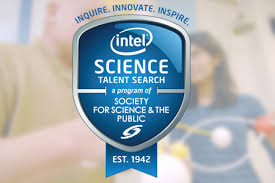Washington, Jan 23 (IANS) Eight Indian-American students are among the 40 finalists in the prestigious Intel Science Talent Search competition, America’s premier national science research competition for high school seniors.
Finalists come from 33 schools in 14 states and represent the country’s best and brightest young scientists. The Intel Science Talent Search encourages students to tackle challenging scientific questions and develop skills to help solve some of the world’s greatest challenges.
Finalists will attend the Intel Science Talent Institute from March 6-12 in Washington, DC to compete for $630,000 in awards, including a grand prize of $100,000 that will be awarded to the first-place winner.
The Indian finalists, and their respective projects, are:
Vishnu Shankar – Monta Vista High School in Cupertino, California – “3D Structure of Human DP Prostaglandin G-protein Coupled Receptor Bound to Selective Antagonists from GEnSeMBLE Predictions”.
Sreyas Misra – The Harker School in San Jose, California – “Design and Characterisation of a Novel Single-headed and Hand-held PET Camera Using 511 keV Photon Collimation via Compton Scatter”.
Rahul Siddharth Mehta – The University of Chicago Laboratory High School in Chicago, Illinois – “A New Max-Flow Algorithm for Sparse Networks”.
Anand Srinivasan – Roswell High School in Roswell, Georgia – “RNNScan: Eukaryotic Gene Prediction via Recurrent Neural Networks Utilising Local-Feature Extraction”.
Ajay Saini – Acton-Boxborough Regional High School in Acton, Massachusetts – “Predictive Modelling of Opinion and Connectivity Dynamics in Social Networks”.
Anubhav Guha – Horace Greeley High School in Chappaqua, New York – “Discovery of Rare Earth Oxide Nanoparticles as Agents for Prolonging Fluorescence Imaging in Biological and Other Systems: Fluorescence Studies from Single Molecules and Dispersions”.
Preeti Kakani – Jericho Senior High School in Jericho, New York – “Differential Gene Expression Prior to Eye Opening in Mouse Superior Colliculus”.
Parth Thakker – The North Carolina School of Science and Mathematics in Durham, North Carolina – “Design, Assembly, and Optimisation of Novel ZnxSeAgy Biocompatible Quantum Dot Sensitised Solar Cells”.





